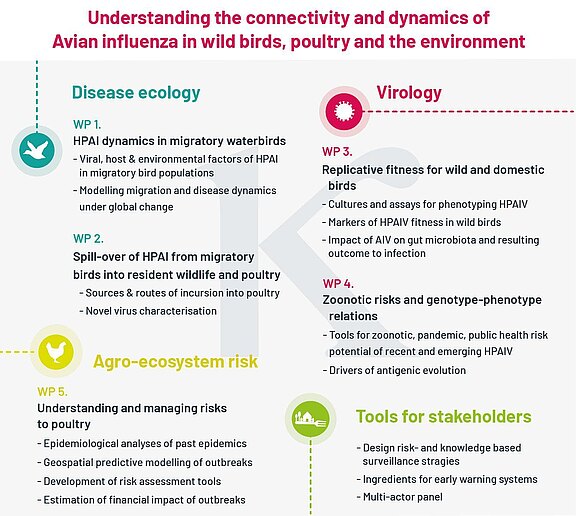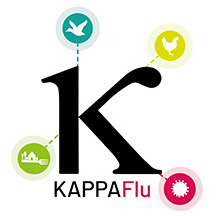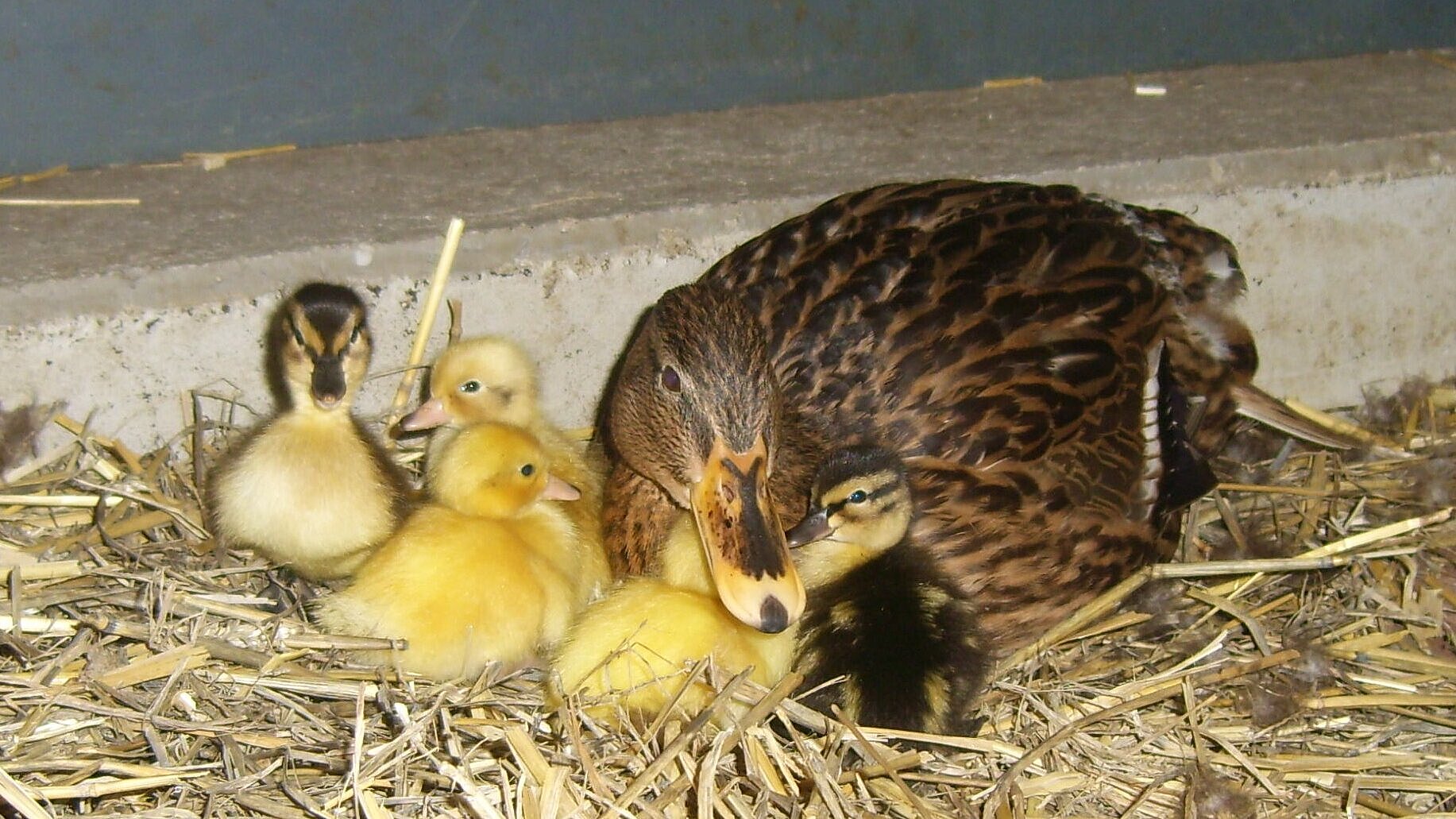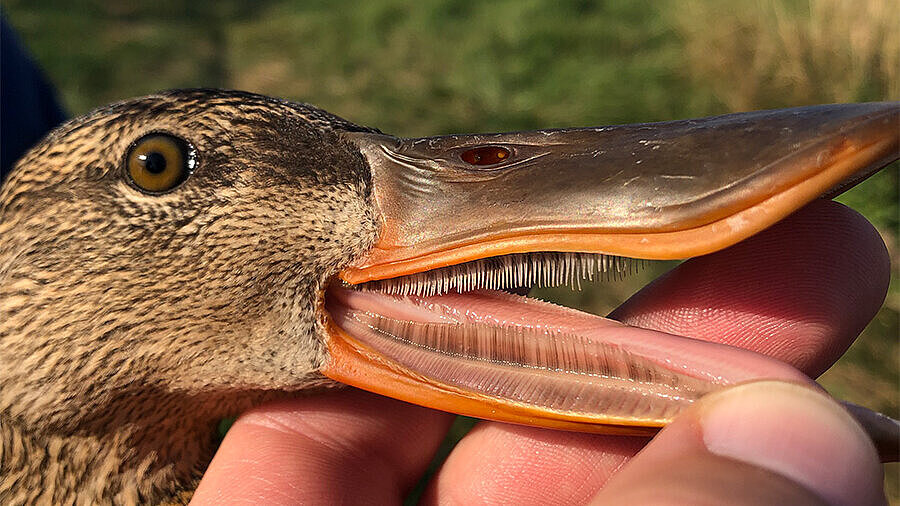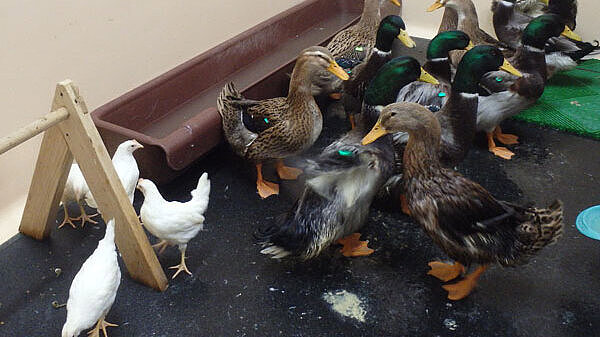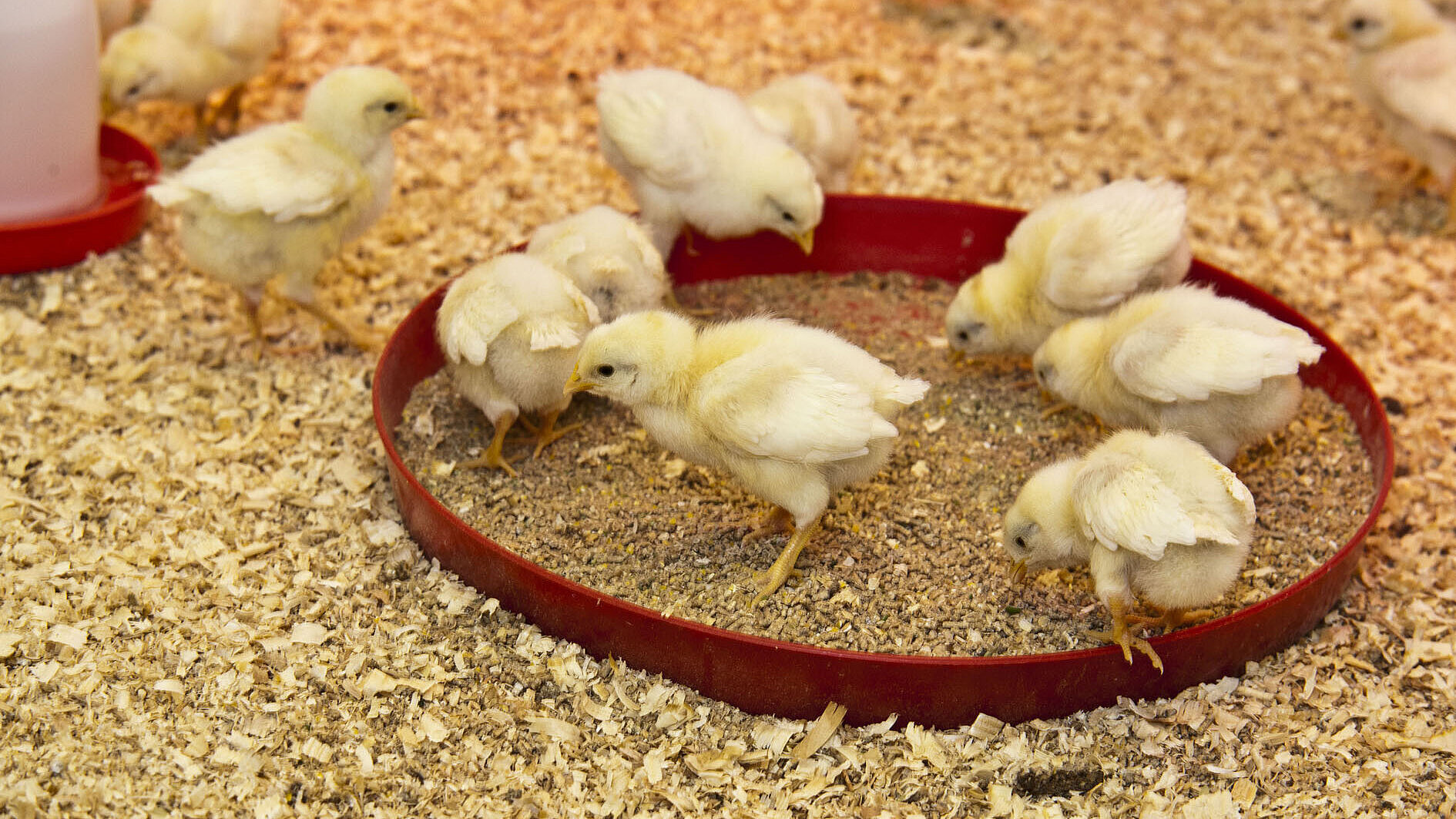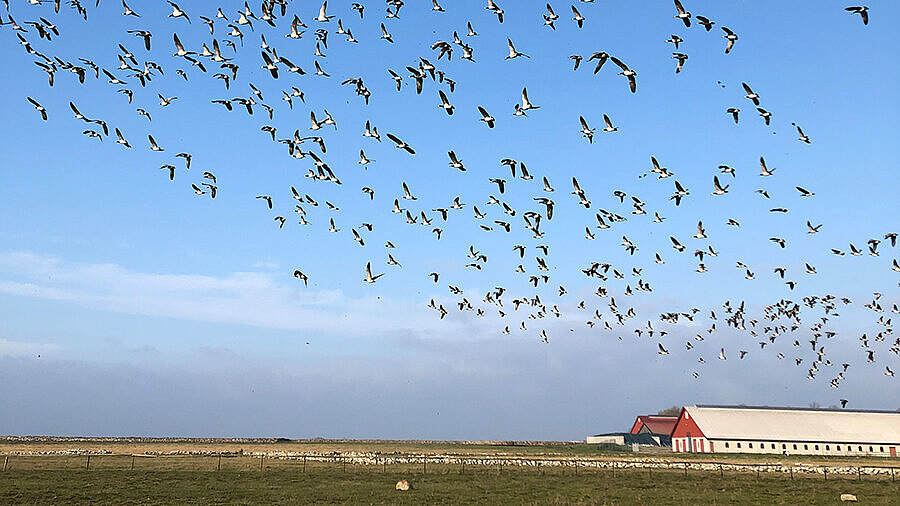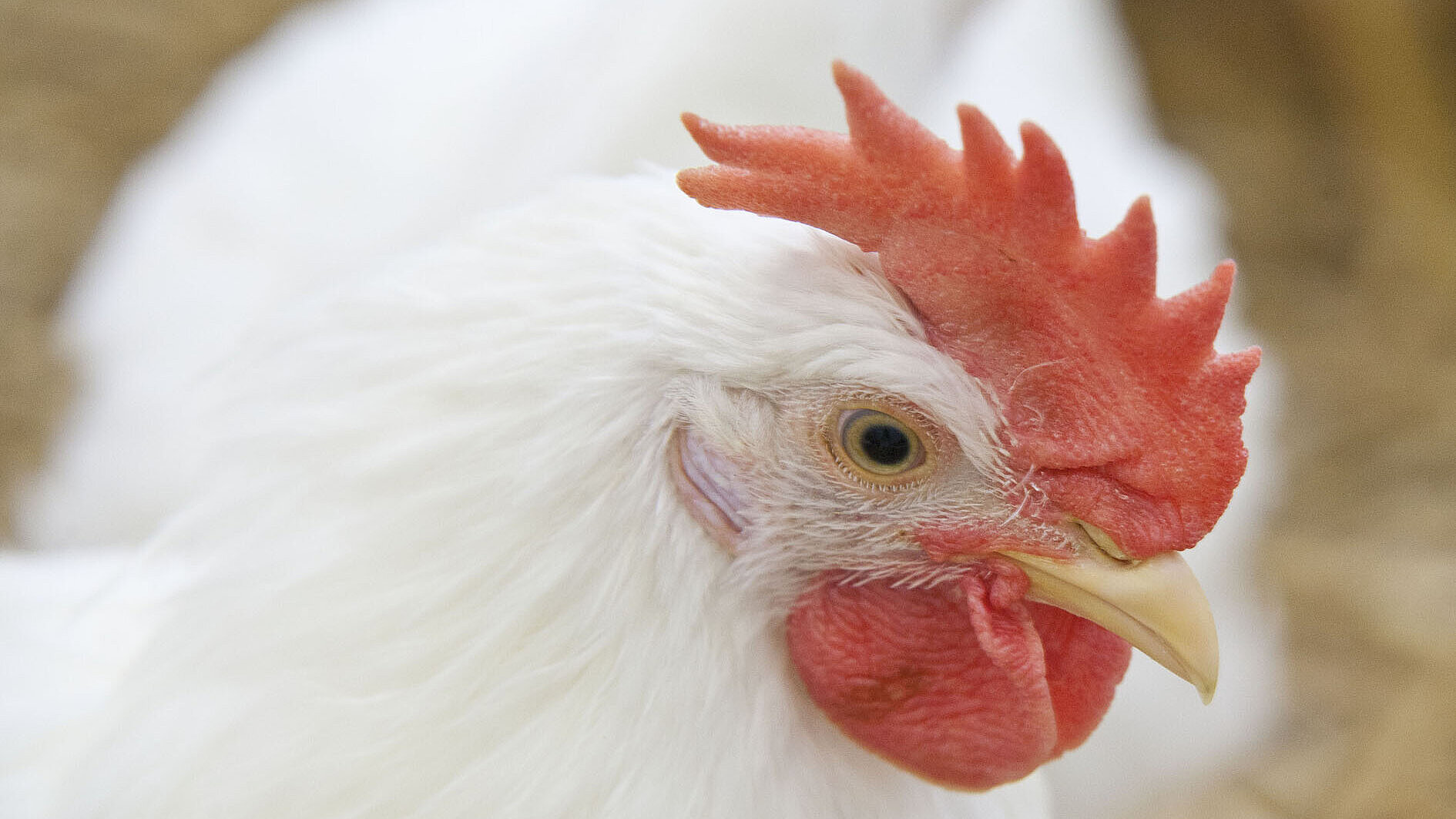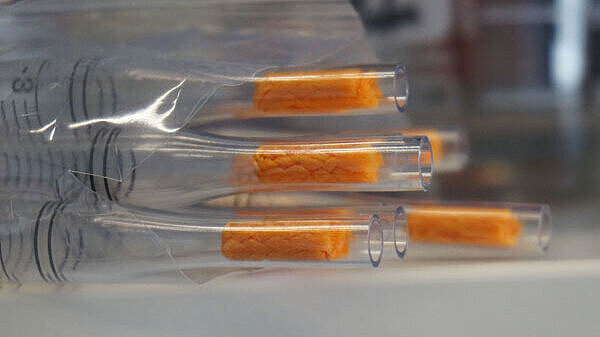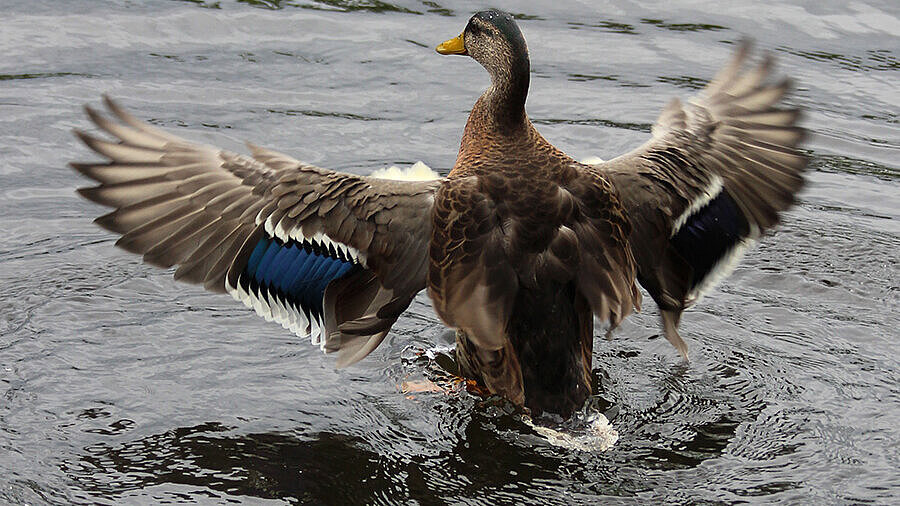KAPPA-FLU aims to understand the connectivity and dynamics of HPAI H5 viruses in wild birds, poultry and the environment, including the impact of climate change.
The ambition of KAPPA-FLU is to improve risk- and knowledge-based surveillance and to identify new and cost-effective prevention and control options (including vaccination) for HPAI in poultry and wildlife that improve human health, animal welfare, wildlife conservation and sustainability of poultry production.
Based on this overall objective and ambition, the specific objectives of KAPPA-FLU are:
- Identify viral, host and environmental factors of HPAI ecology in migratory bird populations critical to long-term maintenance and long-distance virus spread focussing on HPAI H5 clade 2.3.4.4 viruses.
- Unravel sources and routes of HPAI incursions into poultry populations.
- Detect and define genetic changes in HPAI viruses (through mutation or reassortment) that impact viral fitness in different avian and mammalian species and the threat of zoonotic infections.
- Assess the risk factors for incursion of HPAI viruses into poultry holdings.
- Develop new real-time risk assessment tools and determine the economic efficiency (and impact) of improved countermeasures for prevention and control of HPAI in poultry production systems.
KAPPA-FLU is organised into five interconnected work packages across three research themes: Disease ecology, Virology and Agro-ecosystem risk, with an overarching work package for coordination and management, including a Multi-Actor Panel.
